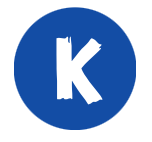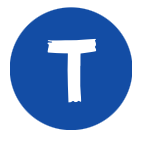Some of the terms used in safeguarding can be tricky. Use the glossary below to work out what’s what and who’s who.
If you haven’t found a term you’re looking for here, take a look at these helpful pages from Law Stuff.
Law Stuff Terms Glossary: For a full glossary of lots of safeguarding terms – including ones you may hear used at school.
Law Stuff Who’s Who: For a fuller list of who’s who – including titles of professionals that work in Education, look at this ‘Law Stuff’ page from Coram.

Abuse happens when a person harms a child or adult. Abuse could happen anywhere: at home, at school, at a club, online or on the street. See our page on ‘Abuse and Neglect’ for more support with this.
An advocate’s role is to support a child or young person to understand what is happening and why, and to help them have their views, wishes and feelings heard.
A person over 18 years old who will support you if you are at the police station or are being interviewed by the police. They must be there by law if you are interviewed, searched, fingerprinted, photographed, giving DNA or being tested for drugs.
![]()
CAFCASS stands for the Children and Family Court Advisory and Support Service. They are family court advisors who are not part of the Local Authority who will be involved when a case is in the family court. They will speak to you about your wishes and feelings and help you tell your solicitor about what you think.
CAMHS stands for the Child and Adolescent Mental Health Services. It is part of the NHS and provides mental health help to children, young people and their families.
A reason to be worried about the health, development or welfare of a child.
A Care Order is granted by the family courts and means that Children’s Services share legal responsibility for the child with their parents.
If a child or young person is looked after by Children’s Services, for example in a foster care placement, then they will be considered to be in the care system. Look at our ‘Care Experienced Young People’ page for more information and support on this.
This is the person in charge of all nursing, midwifery and care staff in an area, and is responsible for making decisions and changes to do with the service.
Anyone who has not yet reached their 18th birthday.
This is a process where a social worker will gather information to help make decisions about the support that a child or their family might need so that the child is safe and can thrive.
Child & Family Meetings are organised so that all of the agencies a child may be involved in can meet together, with the child and family, to discuss what needs to happen.
If a child or young person needs extra help to reach their potential, a social worker will work with them, their family and other professionals to draw up a child in need plan.
This is the process of protecting children that have suffered, or are at risk of suffering, abuse or neglect.
A child protection conference is an important meeting where the people who are working with a child and their family talk about how best to keep them safe and well. They will make a plan of how to do this. The family and child will be part of the conference. A Child Protection Conference Chair will lead the meeting and talk to the family and child about how they can be involved.
The Child Protection Plan is made when there is concern that a child might suffer from abuse or neglect. The plan will set out what work needs to be done to support a child and their family, why it needs to be done, when and by whom.
This person leads the complaints team when a complaint is made about services for children and young people. See more information about complaints in Herefordshire here.
This is the department of the Local Authority that is responsible for identifying and protecting children at risk of harm, providing support for children in need and caring for children in care. It might also be called Social Services or Children’s Social Care.
This is a meeting of professionals and family members who are responsible for helping and supporting a child and their family through their Child Protection Plan.
Kept private or secret.
Giving permission (when the person is able to).
A professional that can listen to people and talk through any problems they may have.

This person has responsibility for the leadership and running of the whole of Children’s Services in the Local Authority area.
Having a disability means a person has a physical or mental condition that can make it difficult to do day to day things.
A doctor is someone who is qualified to treat someone who is ill or injured. They can also prescribe medication or diagnose a condition. There are lots of different types. They may work in a hospital or in the community, for example as a General Practitioner (GP).
Domestic abuse is when a person threatens, bullies or hurts another person they’re in a relationship with or live with. It can be physical, sexual, emotional or financial. See our page on ‘Abuse and Neglect’ for more support on this.
A type of lawyer who will advise you on the law for free if you do not have your own solicitor. They are lawyers from local law firms who can act independently to assist someone who has been accused of committing a crime.

This is the support provided for children, young people and their families to stop small problems getting bigger.
Exploitation is when someone is taken advantage of or treated unfairly to benefit someone else. For example, if someone does jobs without pay or is encouraged to act in a sexual way. Look at our ‘Exploitation and Crime’ page for more information and support on this.

Their role is to support children and their families with a variety of problems. They can offer practical help and emotional support to families, in their own homes and communities.
This is a person, hired by the local authority or an independent agency, who will look after a child or young person if they cannot live with their parents. Family and friends can become foster carers if they are approved by the local authority. Children may live with them for a short period of time, or long-term.
![]()
A GP (General Practitioner) is a doctor who works in the community and is usually the first person people go to if they have a health issue. They can also refer you to other health care professionals to help you.

This is a document that lists all of a person’s physical and mental health conditions – everyone has the right to ask for a copy of this from their GP.
A health visitor is a qualified nurse or midwife who helps, educates and supports children and their family until a child turns five.

This is the first Child Protection Conference meeting held between professionals, parents (or carers), and the young person to talk about worries that there are for the child and how best to keep them safe and well.
IROs are experienced social workers who make sure that people do what they have agreed to do for children who are in care. They also make sure that children who are in care have their own say in the plans made for them. Every child who is in care will have an assigned IRO.

If a child or young person is involved in Children’s Services they may have a key worker who is the main point of contact for the child or family, and makes sure that all of the services they need are working well together. A key worker could be any trusted adult, for example, a teacher.

A child or young person is sometimes called a ‘looked-after’ child if they have been provided with care and housing by Children’s Services. Other terms like “children in care,” or “care experienced young people” are often preferred instead of looked-after-child.
A local authority is a lower tier of government that is run by elected local Councillors and delivers services for the local area like road and transport, support for businesses, community services, adult social care and children’s services. In Herefordshire the local authority is Herefordshire Council.
The LADO is a person who works for the local authority and is responsible for managing any allegations made against adults who work with children.

The Multi-Agency Safeguarding Hub (MASH) is the single point of contact for people to report safeguarding concerns about a child. It is made up of professionals from different organisations, such as social workers, police, education and health representatives, who work together to keep children safe.
A midwife provides support during a woman’s pregnancy, labour, childbirth, and in those first few days after their baby is born.
This term means the involvement of different agencies and professionals who work together (so it could, for example, involve police, health, social services, education).
![]()
Neglect is when a child’s basic physical and/or psychological needs such as food, clothing or shelter, are not being provided. This can put a child at risk of harm and result in serious damage to a child’s overall health and development. See our page on ‘Abuse and Neglect’ for more support with this.
Nurses provide health care for patients in the community, hospitals and GP surgeries.

A personal advisor is an experienced support worker who works with care leavers on a range of issues. Someone’s personal advisor is there to offer them support, advice, guidance and assistance to help them develop their independence.
A Pathway Plan is a plan for young people leaving care between the ages of 16 and 21. It sets out the help and support they will need as they move from being in care to living independently and making plans for their future.
A police officer’s job is to make sure law and order is kept, including that children and young people are kept safe.
This is the information held by the police about a person.
A person who practices a specific profession or occupation (for example, a GP or a Social Worker)
If a child under the age of 16, (or under 18 if they have a disability) lives for more than 28 days with someone who is not a parent or a close relative, and this was an informal arrangement made between the parent and carer, this is called a private fostering arrangement. Children’s Services should be informed of private fostering arrangements so that they can check that the child is safe and well.

If anyone is worried about a child’s safety and/or believes that the child may be suffering harm or may be at risk of suffering harm, they should always contact the Local Authority Children’s Services, or the police. When they do this, it is called a referral.
Where social workers remain involved with a child, they will hold regular meetings with the family, other professionals, and the child or young person. The meetings will look at the plans for a child, to make sure that it remains focused on providing the right kind of support. The review meeting will also consider whether the plan should continue, be changed or be stopped.
![]()
Protecting people from harm.
This is a nurse who is trained to give children and young people medical care in school.
This is an enquiry to work out whether and what type of action is needed to protect a child who is, or may be, at risk of significant harm (when a child or young person might be harmed in a way that seriously affects their health and development). It is based in Section 47 of the Children’s Act, which is where it gets its name.
A child or young person has special educational needs (SEN) if they have a learning difficulty or disability which means they need special educational provision to help them with school work, for example. Look at our page on ‘Neurodiversity and Disability’ for more information and support on this.
Special Education Needs Information, Advice and Support Service.
This is when a child or young person might be harmed in a way that seriously affects their health and development. Physical abuse, sexual abuse, emotional abuse, and child neglect are all types of significant harm.
This is a person who works with children and their families to find solutions to their problems so that children are safe and well. Social workers might complete an assessment to determine if a child is safe and healthy and if they need any support. A social worker will have special education and training, and must be registered with Social Work England (they will have a registration number).
This is a meeting for professionals to share information and determine what the next steps should be to ensure that a child is safe. A strategy discussion is held when a referral is made about a child or young person because there are worries that the child is suffering or is likely to suffer harm.
This is a senior person is in charge of a police force and is responsible for making changes and decisions to do with the police service.

In safeguarding, a threshold means the point at which a child or young people is eligible for a certain type of support.

Any person harmed or who has suffered because of another person’s actions.
Someone who is at risk of harm.

This means a person’s general health, happiness and well-being.
Whether you are comfortable, healthy and happy.
West Mercia is the name for the area that covers Herefordshire, Shropshire, Worcestershire, Telford & Wrekin.

A type of secure accommodation for people aged 15 to 21 who are in custody because they have committed or are accused of committing a crime.
These teams try to help children and young people to stop being involved with crime. They are made up of different agencies working with children who get in trouble with the law, are arrested, or taken to court.